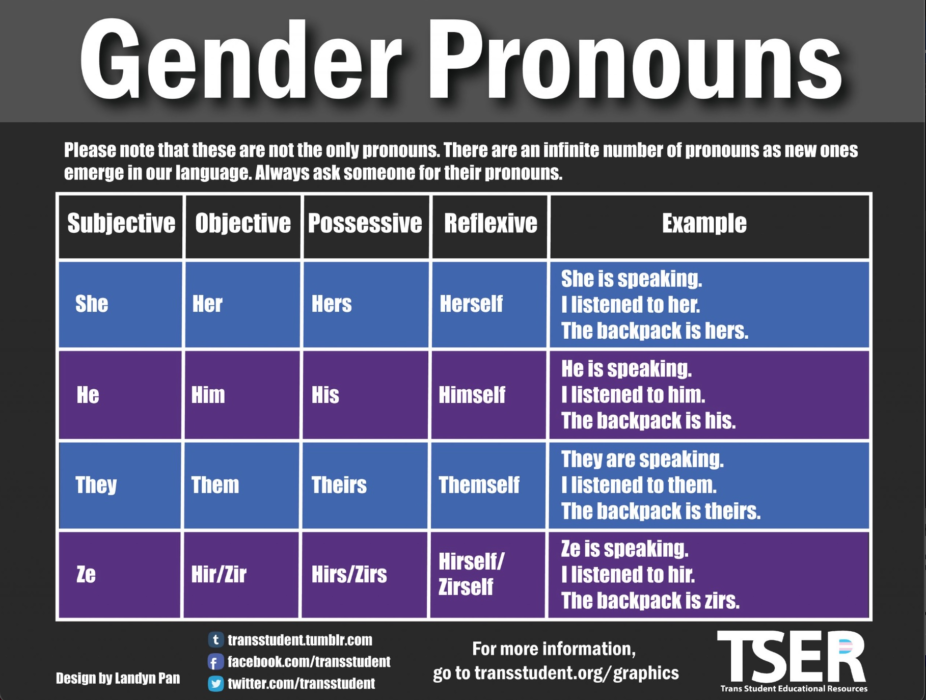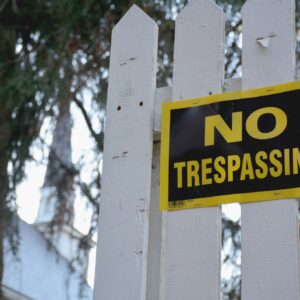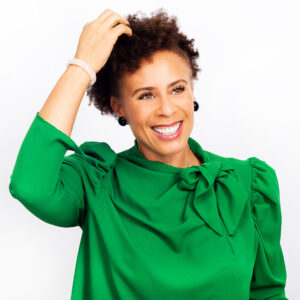
By: Jace Koblun
Addressing a person with their pronouns is important when interacting with them, especially today when more people are learning about themselves and sharing who they are. The English language is constantly expanding and making room for people to identify their authentic selves. While this is Pride Month and a great time to learn about respecting everyone for who they are, it is necessary to celebrate and respect people for who they are all the time.
The Two Row Times had a conversation with 21-year-old Ask Wen, a trans guy living in Newfoundland, shining a light on what it means for cisgender (cis) people to better understand what proper pronoun usage can look like. A cis person is an individual whose sense of personal identity and gender corresponds with the sex they were designated at birth. Ask wants to remind readers that everyone has a unique journey and that he is just one voice in this global conversation.
Jace: What does it mean when individuals use pronouns other than he/him or she/her?
Ask: If someone is using pronouns other than he or she, it can mean that they’re non-binary. But that’s not always the case. Cis people can use pronouns other than “she” and “he” and still be cis. Not all non-binary people identify as transgender and some non-binary people use “he” and/or “she” pronouns. Just because someone uses “she” or “he” pronouns, doesn’t mean they are always female or male. Some people use multiple pronouns. For example, an individual may use “she” and “they.”
Jace: What are some pronouns you have seen used other than she/her or he/him?
Ask: Besides they/them pronouns, I’ve seen ze/hir the most. These are often called neopronouns, which include ones such as per/pers, ey/eim, fae/faer. I want to add that the phrase “preferred pronouns” is not accurate. Someone’s correct pronouns isn’t a preference, it’s a requirement if you want to respect someone.
Jace: If comfortable sharing, can we talk about your pronouns?
Ask: I used to identify as gender-fluid, then as non-binary trans masculine and used ey/eym pronouns. Now I’m figuring out that I don’t identify as non-binary, I identify as male and use he/him pronouns. I don’t use they/them pronouns, so people who use they/them pronouns for me are incorrect. If they don’t know me then it’s good to hear them use they/them. It’s better than assuming male or female.
Jace: When did you begin referring to yourself as he/him?
Ask: I think it was junior high or high school, sometime in secondary school.
Jace: What would you say to someone claiming people change their pronouns for attention?
Ask: My answer to this may be a little snarky; well then pay attention. Respect changes in pronouns. Saying it’s for attention, while rude, is also harmful because you’re minimizing what the person is trying to say. The message that individual is hearing at that point is that it’s not safe to say who they are and be authentic by sharing what their pronouns are. And that’s going to affect a person’s mental health.
Jace: Do pronouns play a role in an individual’s sexual orientation?
Ask: No. Not really. Pronouns are about gender and sexual orientation is about what gender you’re attracted to sexually. Or romantic orientation for romantical attraction. It plays a role in the sense that pronouns help to indicate gender, but pronouns don’t always reflect a specific gender. Some people are attracted to specific gender(s), so it plays a role, but it’s not an absolute. Pronouns don’t define someone’s sexual orientation or gender.
Jace: What does it mean to misgender someone?
Ask: Misgendering is when you incorrectly identify and label someone’s gender. A really common one I come across is “hey guys” or “hey ladies.” Everyone in a group may look like a certain gender, but if someone isn’t, they’re being misgendered.
Jace: Why is it important to respect an individual’s pronouns?
Ask: It’s important for the same reason why it’s important to respect any individual. It helps people feel happy and healthy as well.
Jace: How may an individual feel when you misgender them?
Ask: When I get misgendered I actually feel physical pain, sort of the way people feel anxiety in their body. When I get misgendered it feels like an ache in my chest. I feel terrible, awful, physically. Mentally too. Feels so wrong. I imagine cis people feel it to some degree when they are misgendered, I think a good example of this is when someone has a certain hair type. Some men have long hair and women have short hair and them being called the wrong gender based on a hairstyle may be a way to begin to empathize.
Jace: Why is it important to respect everyone’s journey instead of lumping them into a box?
Ask: I believe that for every way I think someone could be, there’s likely someone else who breaks that preconception or doesn’t fit the idea. One example is non-binary lesbians, which at first sounded like a contradiction to me because I understood lesbians to be women who are attracted to women. One explanation I’ve heard from non-binary lesbians is that lesbians don’t always identify as women. There are lots of gender non-conforming lesbians, such as butch lesbians.
Jace: How is it a privilege to not have to worry about which pronoun someone is going to use for you based on how they perceive your gender?
Ask: Yes. It’s a privilege because it’s exhausting to be misgendered and knowing that you’re not going to be misgendered or not having to think about it, is something that not everyone can experience. As I’ve said already, misgendering is really painful, so the worry and the avoidance that comes with the fear of being misgendered impacts a lot of my life. I’m on edge for a lot of everyday social situations, such as getting in a taxi, trying to get through a checkout at a grocery store, or ordering food at a restaurant. A lot of waiters and hosts try to make it personal or respectful by using gendered terms like “ma’am” but since it’s incorrect, it doesn’t feel great when they come up to the table and say “hey girls.”
It’s also a privilege because I can’t really see that kind of security ever happening to me. It seems like if I feel the way that I feel forever, where I like wearing makeup and I like having long hair, it’s hard for people to understand that I’m not a woman because people associate those things with being a woman. So, it feels like I’m going to be misgendered my entire life.
Jace: What ways do you respond when a stranger versus a friend misgenders you?
Ask: While strangers misgendering me impacts my ability to go about day-to-day life, I’ve numbed myself to it and remind myself they don’t know because they’re strangers. When close friends misgender me its hurts because they should know, but I realize it’s not from a place of disrespect, it’s mostly just social conditioning.
Friends are also really important because having friends that gender me correctly helps me keep going. Sure a lot of people are going to continue to misgender me, but my friends keep me going because they see who I am. Even just one person would help someone a lot. Some people can’t tell their family but having a friend can really help.
Jace: What is an individual’s role when a friend has come to them about changing their pronouns?
Ask: Do your best to remember, adjust and normalize it. Practise using the correct pronouns as much as you can. Sometimes it can help to practise with another friend, like telling a story (that they’re cool with being shared) about the person who has new pronouns. Another important part is to not make excuses or apologies in advance. We usually already know that it’s difficult for people to remember and we know mistakes will happen. Saying something like “This is really hard for me, I’m not used to it and I’m sorry but I’m going to make mistakes,” is not necessary because most of us know it’s going to happen. Bringing it up doesn’t help and makes me feel bad about sharing my pronouns; like I’m being a burden.
Ask: How do you respond when someone unintentionally misgenders you?
If it’s someone I’m not going to see again my preference is to ignore it and leave as quickly as possible. If I correct the individual I risk them not being cool with it and I may not have the energy to explain or educate. If it’s someone I see occasionally like a bartender, then it’s really nice if a friend helps me correct them for me. If a friend does it, I find people take it less personally. If I correct them, sometimes they think I’m more upset at them than I actually am, which drags out how uncomfortable the situation already can be.
If it’s a friend, I need to remind myself they care about me. The best way for me to handle it is to immediately say “he” to correct it when it happens. Sometimes I don’t and I’ll end up thinking about it too much and wonder if the individual knew it happened or not.
Jace: How should someone else respond when they accidentally misgender you?
Ask: Try to make it as short as possible. If you catch yourself doing it you can kind of cut yourself off and use the right pronoun right away. So, if you say the wrong one, say the correct one immediately as a correction. Switch pronouns immediately. You can say a quick apology, like “he likes— no sorry, they like pancakes,” for example. Keep the conversation going and don’t put any more attention on the mistake or the person. I find that’s enough and what I appreciate the most. It’s unpleasant being misgendered and I want to forget about it and move on as fast as I can. I get it when people feel the need to make a more extended apology in which case, doing it in private at a later time is fine. But doing it in the middle of a conversation is stressful and it ends up feeling more about the person who made the mistake than the mistake itself.
Jace: Why is it important today for cis people to educate and teach themselves this information and not rely on their friends to educate them?
Ask: It’s important because trans people have to live this every day. They don’t have a choice and it’s easy to get burnt out. I would advise people to make sure the information they’re looking at is actually from trans people and not, for example, from a textbook written by a cis author explaining what being transgender is. The internet is great because there are a lot of resources created by trans people about trans people. So then the trans people in your life don’t have to repeat themselves to every person they meet.
Jace: How does a cis person looking to be an ally become an ally?
Ask: I look at allyship as helpful actions. Obviously caring about trans people is the first step. Learning from trans people would be the next step. Applying what they say are the best ways to respect trans people. How to best respect a trans person is self-defined. If you’re not sure of something and it’s something that could be specific to them, you should ask them and listen if you’re corrected. Even if your information is from a trans person, whatever the trans person is telling you about themselves is the most relevant and most applicable information. Asking a person about themselves is also good because people change. So for example, if someone changes their pronouns, you have to listen to that person and understand that what they’re saying is how you should be going about it at that time.
Jace: How important is it to you to have allies?
Ask: It’s important to have allies because going through life means you’re going to have to interact with people and the way things are set up right now, people aren’t all taught to understand and accept trans people as a default. Allies are important because they help make respecting trans people a normal thing. It helps me as a trans person feel like there’s hope for a better life experience. My fear of being misgendered for my entire life is improved by having allies that gender me correctly.
Ask is a part of the Gender Generations Project. It involves trans youth from ages 10 to 18 and trans adult mentors. The Gender Generations Project has two books launching in August 2021. It has stories, essays, art, and poetry from trans youth on topics including childhood, family, school, daily life, bodies and mental health.
The first book is meant to be a toolkit for all young people on what supporting the trans community can look like. The second book is formatted more like a textbook. It has a lot of the same content but includes academic responses from scholars that provide context and ideas for concrete actions.
The books are important because most people have an idea of what being transgender is, but that image is not always formed out of information from trans people. It becomes an issue because people will inevitably run into trans people. They may be looking for support from a friend, trying to get through the grocery store without harassment, or being affected by laws made by people who don’t know what it means or what it is like to be trans.
“We put a lot of ourselves onto these pages so reading it and listening to us when it’s about us is a step towards bringing our communities together,” said Ask.
You can find more information and links to the books by visiting: www.gendergenerations.org.










